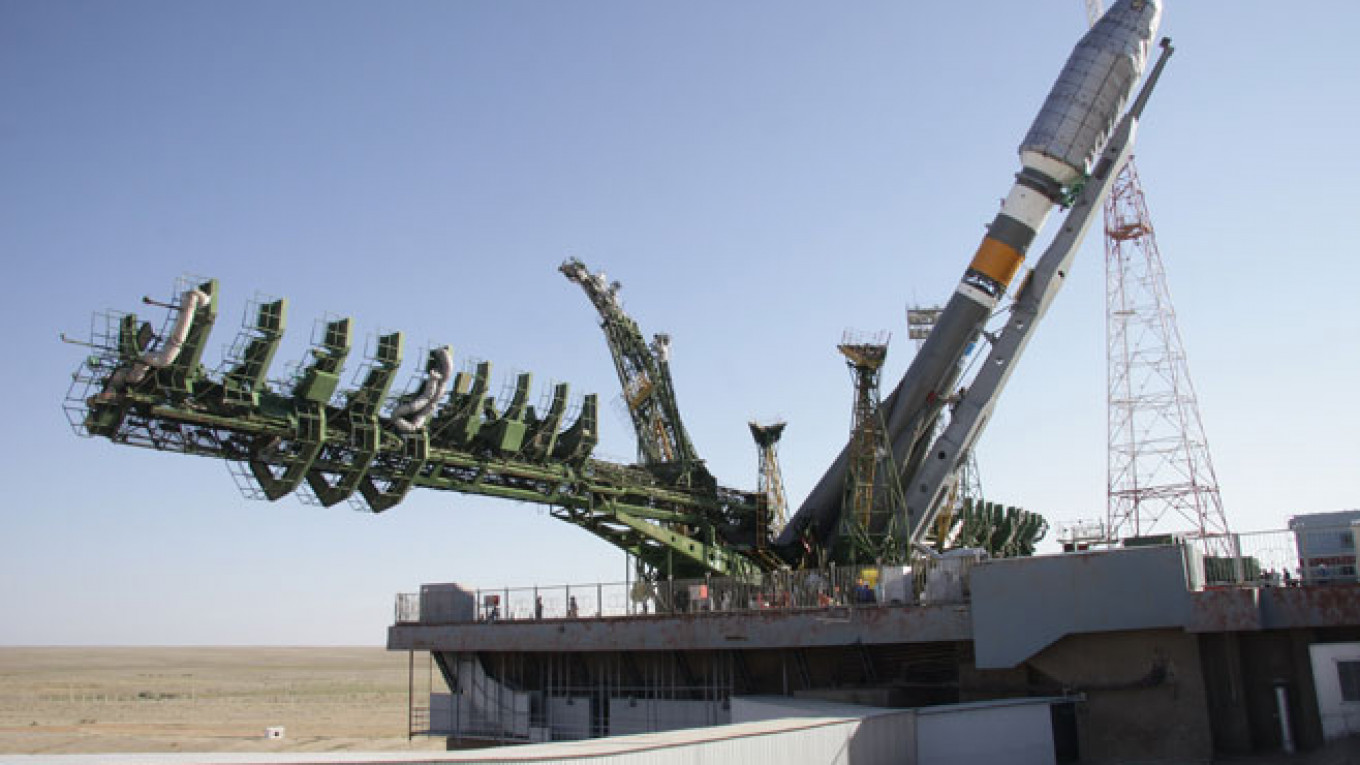Russia's Federal Space Agency, Roscosmos, will upgrade the Soyuz rocket and secure its supply chain by phasing out older versions in favor of the newer Soyuz-2 series to support the International Space Station, the head of the company that builds Soyuz said.
Variants of the Soyuz 2 series rockets are already in use for satellite launches from the Baikonur Cosmodrome in Kazakhstan, and the European Space Agency launch facility in French Guiana. But now, the rocket is set to begin launching unmanned Progress resupply vehicles to the International Space Station. If all goes well, the Soyuz 2 rockets may begin transporting astronauts and cosmonauts to the space station aboard the Soyuz spacecraft as early as 2016.
The older Soyuz rockets rely on a Ukrainian control system — a relic of the rocket family's Soviet heritage that in the aftermath of Russia seizure of Crimea from Ukraine in March looks like a threat to Russia's space program. The rockets are based on the same core design that launched Sputnik and Yury Gagarin into space at the dawn of the space age.
"The Soyuz-U and Soyuz-FG control systems are analog [systems] made in Ukraine," Alexander Kirilin, CEO of the Progress Rocket and Space Center in the Volga city of Samara told Interfax on Monday.
However, the Soyuz 2 rockets use a Russian-made digital control system. Aside from further moving Russia's space industry away from its reliance on Ukrainian components, the digital control system allows the rockets to handle a wider variety of payloads — making the tried-and-tested Russian rocket more versatile than ever before.
"Currently [we are] contracted to manufacture four Soyuz 2.1a carrier rockets for the Progress cargo transport ship," Kirilin said. The Progress cargo vehicle is an unmanned derivative of the Soyuz spacecraft that currently serves as the only means of transporting international teams of cosmonauts and astronauts to the International Space Station, or ISS — a $150 billion multi-national project involving 15 nations, including the U.S. and Russia.
Progress has historically used the Soyuz-U rocket to reach ISS, but on Oct. 29 it will fly aboard the Soyuz 2.1a for the first time. This will be followed by two launches aboard the newer rocket in 2015, with the final rocket slated to launch in 2016.
Beyond this, Kirilin hopes that the new Soyuz 2 boosters can be used for manned ISS missions by 2016, a job currently done by the Soyuz-FG launch vehicle.
"We propose conducting three flight tests with [Progress] supply ships and then proceed to launches of manned spacecraft. It is planned that launches of manned Soyuz vehicles on Soyuz-2.1a can begin by the end of 2016 or the beginning of 2017," he said.
Contact the author at bizreporter@imedia.ru
A Message from The Moscow Times:
Dear readers,
We are facing unprecedented challenges. Russia's Prosecutor General's Office has designated The Moscow Times as an "undesirable" organization, criminalizing our work and putting our staff at risk of prosecution. This follows our earlier unjust labeling as a "foreign agent."
These actions are direct attempts to silence independent journalism in Russia. The authorities claim our work "discredits the decisions of the Russian leadership." We see things differently: we strive to provide accurate, unbiased reporting on Russia.
We, the journalists of The Moscow Times, refuse to be silenced. But to continue our work, we need your help.
Your support, no matter how small, makes a world of difference. If you can, please support us monthly starting from just $2. It's quick to set up, and every contribution makes a significant impact.
By supporting The Moscow Times, you're defending open, independent journalism in the face of repression. Thank you for standing with us.
Remind me later.






